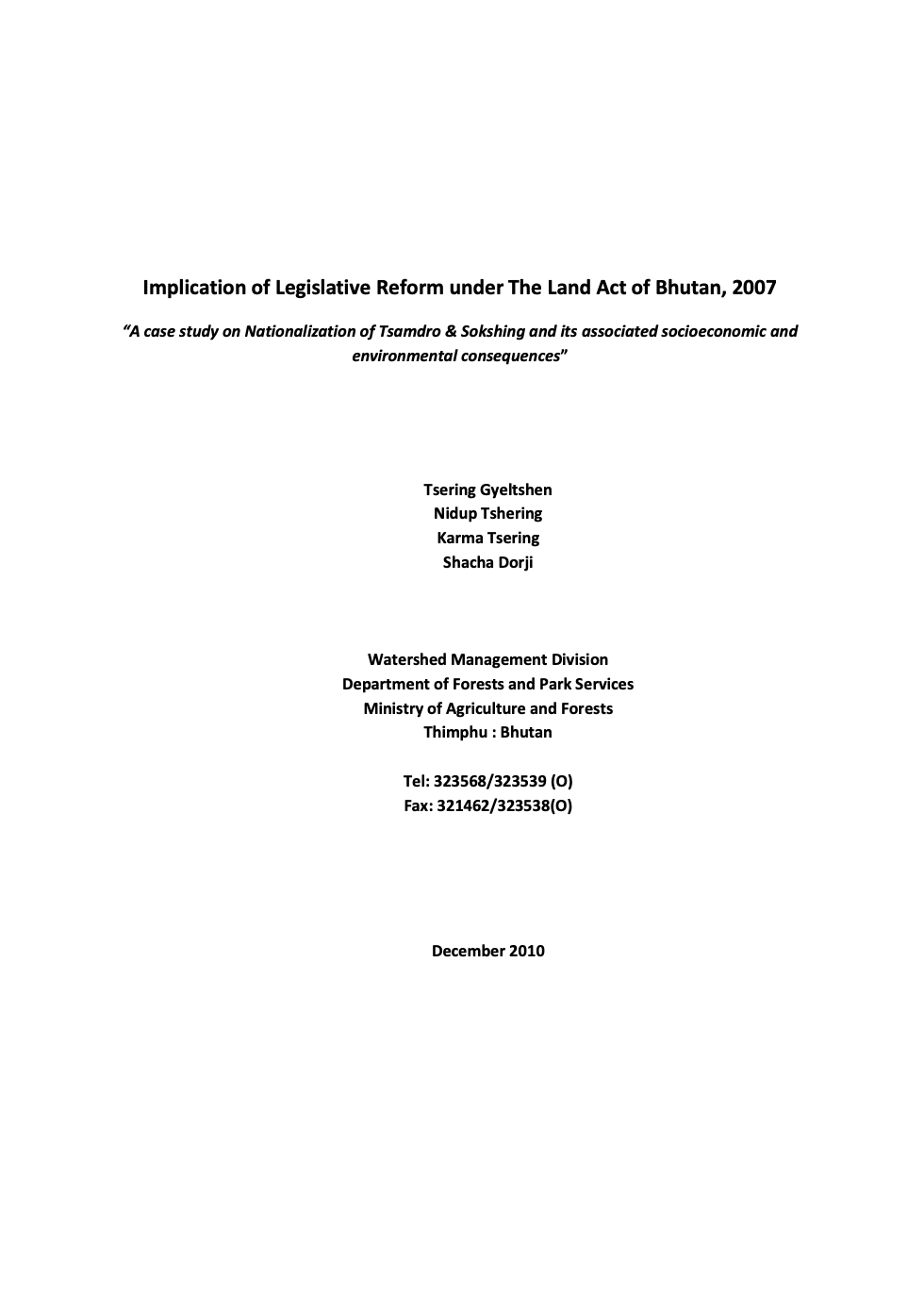Resource information
Given its seemingly beneficial aspects to socioeconomic development and environmental well-being, the legislative reforms initiated under the Land Act of Bhutan, 2007 have raised so much consternation as well as hope in the minds of the Bhutanese people who either depend on livestock husbandry or leasing out such rights to others with livestock and compensated with payment in cash or kind in the form of livestock products. There was an urgent need to carry out geog-based case studies on the ramifications of implementing the revised provisions vis-à-vis Tsamdro and Sokshing under the Land Act of Bhutan, 2007. Past experiences have afforded a context for taking proactive measures in coping with what may become inevitable once the statute of leasehold is exercised. These case studies are expected to provide insight into the process of rights annulment from the Thrams, the level of harmonization between the new statutory rights and the customary practices, the impact on the natural resources and their management under these land use systems, and the socio-economic consequences. Of particular significance, is the bearing on high-altitude rangeland administration, equity in access and tenure, conservation of rangeland ecosystems and sustainable use of their resources?

